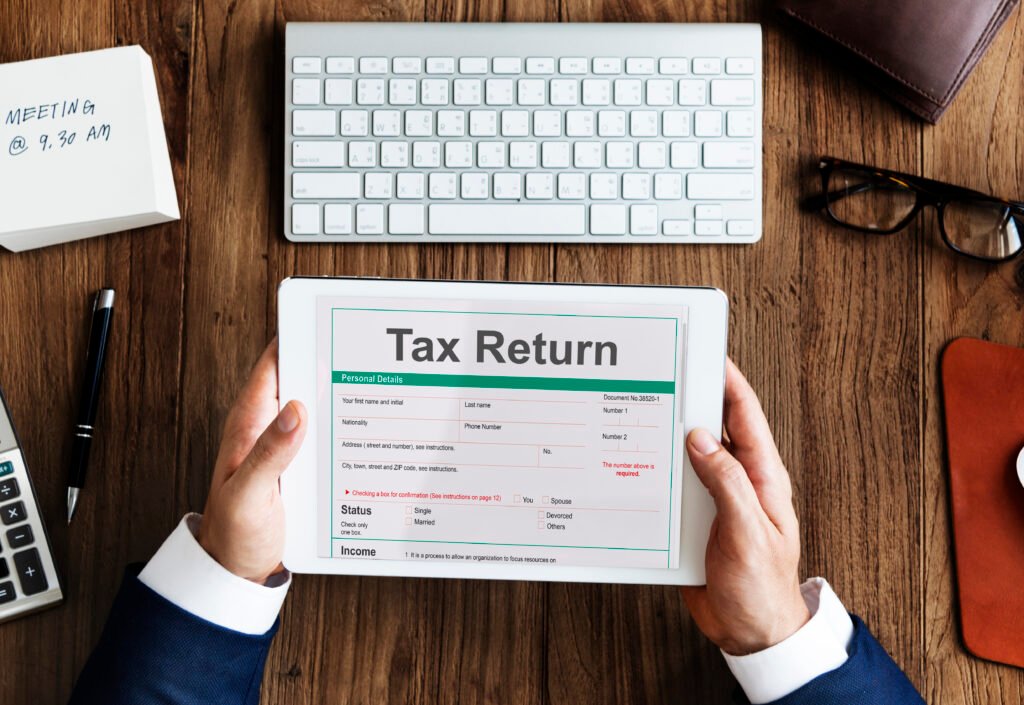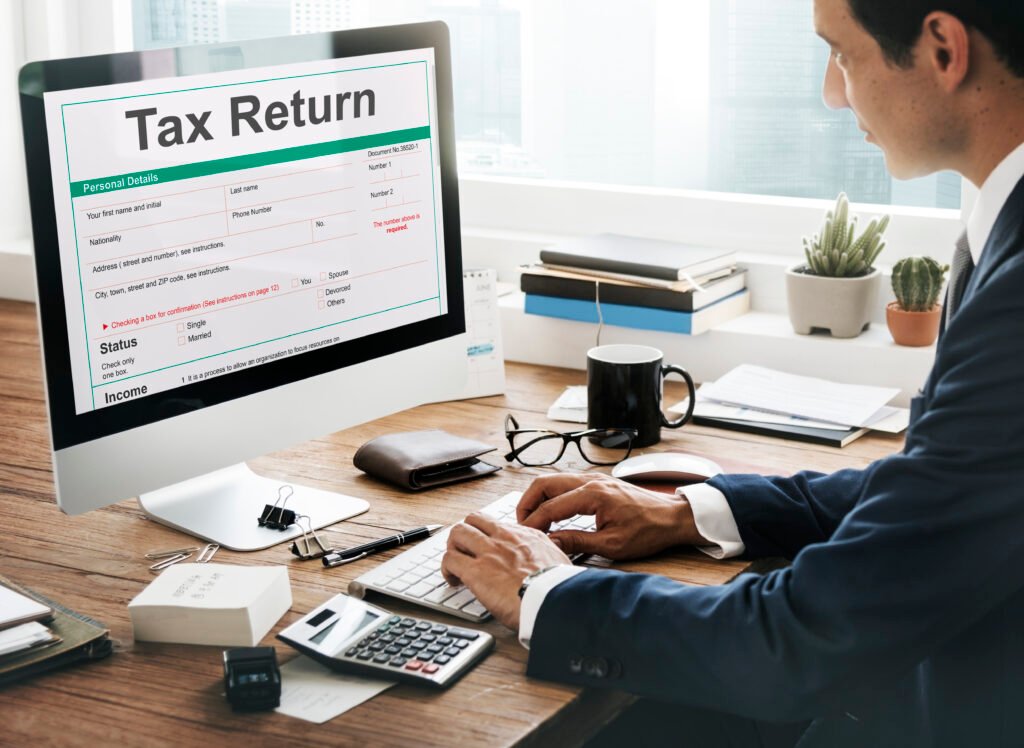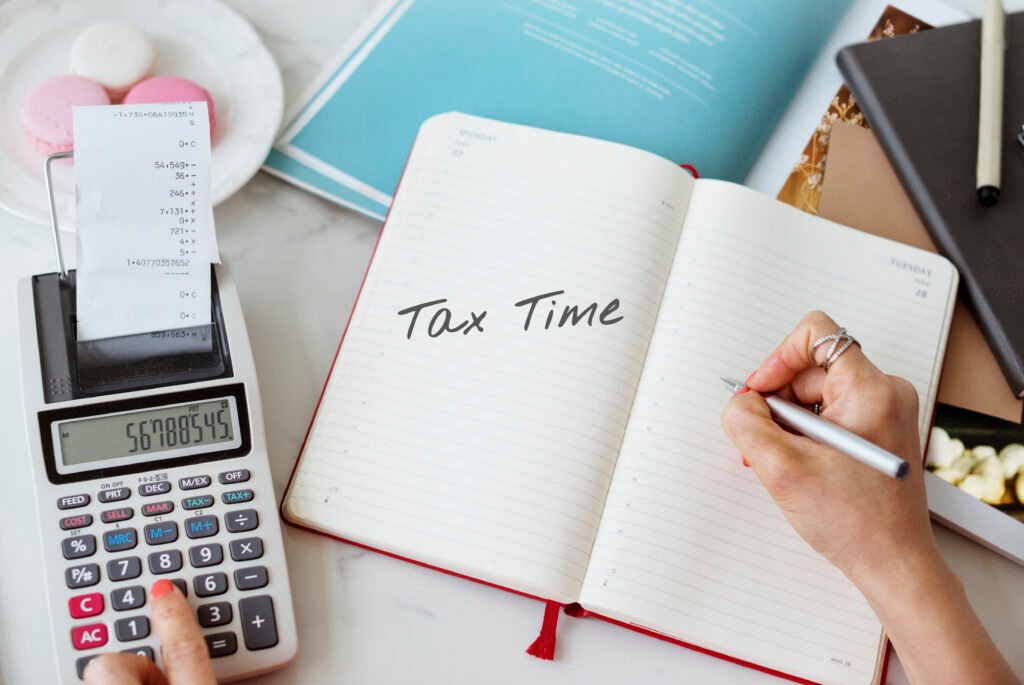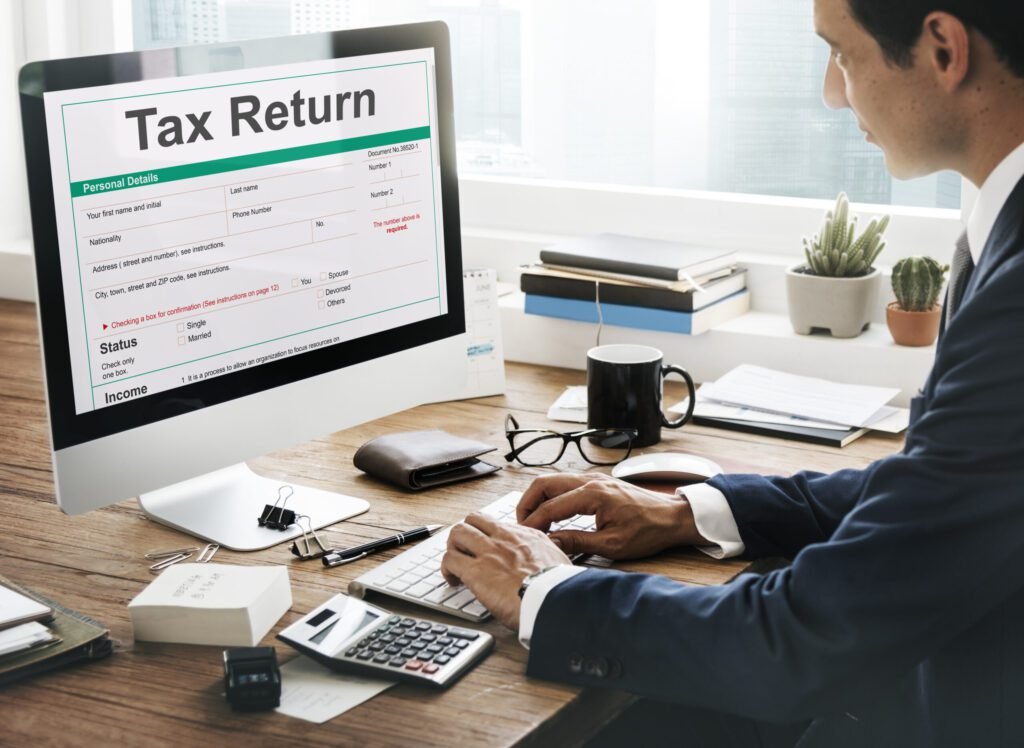Starting an online ecommerce business in the UK is exciting, but it also comes with some important responsibilities. One of the biggest things you need to understand is taxes.
Don’t worry; it might sound scary at first, but we’re here to help you make sense of it all.
In this guide, we will answer the crucial question: “What Taxes Do I Need to Pay as an Online Seller in the UK?” We will walk you through the different types of taxes you might need to pay as an online seller in the UK. We’ll cover income tax, VAT, National Insurance, and more.
We’ll explain what these taxes are when you need to pay them, and how to do it properly.
By the end of this article, you’ll have a clear picture of your tax obligations. This knowledge will help you run your online business smoothly and avoid any surprises come tax time.
Let’s dive in and demystify UK taxes for online sellers!

Income Tax for Online Sellers
As an online seller in the UK, it’s important to understand how income tax applies to your business. Whether you sell through platforms like Amazon or eBay or run your own website, Depending on how your business is set up, you might have to pay income tax on your earnings.
Income Tax Guide for Online Sellers?
Income tax is the tax you pay on your profits after expenses. If you’re a sole trader or part of a partnership, you are responsible for paying income tax on the earnings from your online business.
Here’s how it works:
- Sole Traders: You’ll need to report your income and expenses using a self-assessment tax return.
- Partnerships: Each partner pays income tax on their share of the profits.
- The amount of tax depends on your income and whether you’re a UK tax resident.
For the 2023-2024 tax year in the UK, the income tax rates are:
- 0% if your profits are under £12,570.
- 20% on profits between £12,571 and £50,270.
- 40% of profits between £50,271 and £125,140.
- 45% on profits over £125,140.
Income tax rates vary based on your profit levels, so it’s important to keep accurate records and file your taxes correctly each year.
By understanding these basics, you’ll stay compliant and avoid penalties.
How to File Income Tax via Self-Assessment
Now that you understand how income tax applies to your online business, the next step is knowing how to file your taxes properly.
As an online seller, you’ll use the self-assessment system to report your earnings and pay the correct amount of tax.
Step 1: Register for Self-Assessment
You must register with (His Majesty’s Revenue and Customs)
HMRC as self-employed. After registering, you’ll receive a Unique Taxpayer Reference (UTR) number, which is required for filing.
Step 2: Keep Track of Your Income and Expenses
Throughout the tax year, maintain accurate records of your income and allowable expenses (e.g., shipping and marketing costs). This will ensure you can report your earnings correctly and reduce your taxable income.
Step 3: File Your Self-Assessment Tax Return
You need to file your self-assessment tax return by January 31st of the following year.
Step 4: Pay Your Income Tax
After filing, (His Majesty’s Revenue and Customs)
HMRC will calculate and figure out how much tax you owe. Payment is due by January 31st.
Key Deadlines:
- October 5th: Register for self-assessment.
- January 31st: Submit your tax return and pay.
Late filing or payment will result in penalties, so it’s important to stay on top of these dates!
If you’re not comfortable handling taxes and accounting, don’t hesitate to contact Zmartly. We can guide you through the process and make it easier.
VAT (Value Added Tax) for Online Sellers
When thinking about what taxes I need to pay as an online seller in the UK, one of the most important taxes to consider is VAT. VAT is a tax on goods and services that you’ll need to charge your customers if you’re VAT-registered.
But here’s the good news: you don’t need to register for VAT unless your online business sales reach £90,000 within a 12-month period.
This threshold provides some relief for smaller sellers, allowing them to focus on growing their business before dealing with the complexities of VAT.

What is VAT, and When Do You Need to Register?
VAT is a tax on goods and services. It’s what you’ll need to charge your customers if you’re VAT-registered. But here’s the good news: you don’t need to register for VAT unless your online business sales reach £90,000 within a 12-month period.
Here’s when you need to register for VAT:
- If your online business makes £90,000 or more in sales within a 12-month period, VAT registration is required.
- You also need to register if you expect your sales to exceed the £90,000 threshold in the next 30 days.
- Even if your sales are under £90,000, you can voluntarily register for VAT, which could be useful for claiming back VAT on business expenses.
Once registered, you’ll need to charge your customers the standard VAT rate of 20% on most products and services and pass this on to HMRC.
Simple Example: If your business sells £90,000 worth of goods in a year, you’ll need to register and start charging 20% VAT. For example, an item sold for £100 will now cost £120 with VAT added.
Understanding when to register and tracking your sales will keep you compliant and avoid any late registration penalties!
VAT for International Sales
So, you’ve got the hang of UK VAT; now, let’s discuss international sales. Selling goods outside the UK? Great for business, but it comes with its own set of VAT rules to follow.
Selling Goods Overseas: VAT Rules to Keep in Mind
When you sell goods to customers outside the UK, things work a little differently. The good news is that exports are usually zero-rated for VAT, meaning you don’t have to charge VAT on goods sold to overseas sellers.
However, you’ll need to keep records proving that the goods left the UK, as HMRC will want to see this.
On the flip side, when you’re importing goods into the UK, you’ll be hit with import VAT. This is charged at 20% of the value of the goods coming into the country. If you’re VAT-registered, the bonus is you can reclaim this import VAT on your VAT return.
Simple Breakdown:
- Exports: No VAT (0%) is charged to overseas customers, but proof of shipment is kept.
- Imports: Pay 20% VAT on goods brought into the UK, which can be reclaimed if you’re VAT-registered.
Example: You sell £5,000 worth of goods to the US—no VAT to charge, but remember to keep proof. If you import goods worth £3,000 into the UK, you’ll pay £600 VAT (20%), which you can reclaim later.
Tracking VAT for international sales isn’t complicated, just make sure to stay organised!
Platform-Specific Tax Rules
Now that you’re a VAT pro for international sales let’s zoom in on some platform-specific rules. Selling on Amazon or eBay? Congrats, but brace yourself; these platforms come with their own quirky tax rules.
Let’s start with Amazon and see how they handle VAT (spoiler alert: they make your life a bit easier!).
VAT and Sales Tax for Amazon Sellers
When selling on Amazon, VAT compliance gets easier. Amazon collects VAT on behalf of sellers and automatically reports it to HMRC, saving you some headaches. This is especially handy for cross-border sales, where tax rules can get tricky.
Amazon’s VAT Services ensure you charge the correct VAT, typically 20% on most goods. For international sales, Amazon helps manage both VAT and sales tax.
Example: You sell a product for £100 on Amazon UK. Amazon will collect £20 VAT (20%) and handle reporting to HMRC, so you don’t have to worry about the paperwork!
Tax Obligations for Sellers on eBay and Etsy
When selling on eBay and Etsy, VAT can be a bit more hands-on than Amazon. These platforms don’t automatically collect VAT for you, so it’s your responsibility to handle the reporting to HMRC.
Here’s what you need to know:
- If your sales exceed the £90,000 threshold, you’ll need to register for VAT and charge 20% VAT on applicable items.
- For international sales, you’ll also need to be aware of any customs duties and VAT rules for shipping overseas.
Example: If you sell an item for £50 on eBay to a UK buyer, you’ll need to add £10 VAT (20%) and ensure you report this amount on your VAT return. Always track your sales to stay compliant!
National Insurance Contributions (NICs)
So, we’ve covered income tax and VAT, but if you’re an online seller, there’s another important piece of the tax puzzle: National Insurance Contributions (NICs).
These payments are crucial for securing state benefits, including your pension.

What are National Insurance Contributions?
If you’re a self-employed online seller, you’ll need to pay NICs based on your business profits. There are two types of contributions to be aware of Class 2 and Class 4.
Here’s the breakdown:
- Class 2 NICs: If your profits are over £12,570, you pay £3.45 per week.
- Class 4 NICs: Paid on profits over £12,570, at 9% on profits between £12,570 and £50,270, and 2% on profits above £50,270.
Example: Let’s say you’re an online seller making £15,000 in profits. You’ll pay Class 2 NICs and Class 4 NICs in the amount of over £12,570.
Paying NICs on time is vital for your future benefits and keeping your online business running smoothly!
When and How to Pay National Insurance Contributions NICs?
Payment Methods and Deadlines
- Class 2 NICs: These contributions are for those with profits over £12,570. They are usually automatically calculated as part of your self-assessment tax return, and you pay them annually by January 31st for the previous tax year.
- Class 4 NICs: These are also calculated through the self-assessment tax return and are paid together with your overall tax bill, including income tax.
How to Pay National Insurance Contributions:
- Online Payment: You can pay directly via HMRC’s website using a debit or credit card.
- Direct Debit card: Set up a regular direct debit with HMRC to automatically cover your NICs.
- Bank Transfer method: You can also transfer funds directly from your bank account to HMRC using your payment reference (your Unique Taxpayer Reference, or UTR).
- Pay via PAYE: If you also earn through employment, part of your NICs may be paid via the Pay As You Earn (PAYE) system.
Penalties: Late payments can lead to interest and penalties, so make sure to keep an eye on the deadline!
Example: As a self-employed seller, if your profits exceed £12,570, be sure to submit your payment by January 31st through any of the methods above to avoid fees.
Corporation Tax for Online Sellers
Now that we’ve tackled income tax and National Insurance Contributions for self-employed sellers, let’s shift gears.
If you’re running your online business as a limited company, you’re in the world of corporation tax a bit different, but we’ll walk through it together.
What is Corporation Tax?
If you run a limited company, the profits you make are subject to corporation tax instead of income tax. This includes any retained earnings that stay within the company and dividends you distribute to shareholders.
When considering what taxes do I need to pay as an online seller in the UK, it’s essential to note that corporation tax applies to the profits of limited companies.
Currently, the corporation tax rate in the UK is 19% on your business’s profits. Any profits you keep within the company (retained earnings) will be taxed at this rate. When you decide to pay out dividends, there’s an additional tax you’ll need to handle.
Example: If your company earns £50,000 in profit, you’ll pay £9,500 in corporation tax (19%). The remaining £40,500 can either stay in the company or be distributed as dividends.
Being a limited company means you have different tax obligations, but knowing these rules helps you stay on top of things!
Filing Corporation Tax
Now that you know what corporation tax is, let’s walk through how to file it to keep your business in good standing with HMRC. Filing correctly and on time is crucial to avoid penalties.
Steps for Filing Corporation Tax
- Prepare Your Accounts: Before filing, ensure all your business’s income and expenses are accounted for. This will give you your profit amount, which will be taxed at around 19% corporation tax rate.
- Register for Corporation Tax: If you haven’t already done so, register your business with HMRC for corporation tax via gov.uk.
- File Your Tax Return: Submit your CT600 form online via HMRC’s system or a tax digital software by your deadline (12 months after the end of your accounting period).
- Pay Corporation Tax: Pay your tax bill within 9 months and 1 day of your accounting period’s end. Missing this can lead to penalties.
Example: If your business’s accounting year ends on March 31st, you’ll need to file by March 31st next year and pay by January 1st to avoid penalties.
Following these steps ensures your business stays compliant with HMRC and avoids unnecessary fees!
Trading Allowance for Small Online Sellers
If you’re a small online seller, the trading allowance can be your best friend when it comes to saving on taxes. It allows you to earn up to £1,000 tax-free from your online sales each year.

What is the Trading Allowance?
The trading allowance is a simple way for small sellers to reduce their taxable income. If your total trading income is less than £1,000 in a tax year, you don’t need to declare it or pay tax on it. If your earnings exceed £1,000, you can deduct this amount from your taxable income.
Example: Let’s say you sell £1,500 worth of goods online. You can deduct £1,000 from that and only pay tax on the remaining £500. It’s an easy way to reduce your tax burden!
Common Deductions and Allowable Expenses for Online Sellers
Beyond the trading allowance, understanding which costs you can claim is crucial in reducing your tax liability. Allowable expenses help reduce your taxable profits.
What Expenses Can You Deduct?
As an online seller, you can deduct expenses directly related to your business. Some common examples include:
- Shipping fees
- Packaging materials
- Marketing costs (e.g., ads)
- Software costs for managing your online business
Example: If you spend £200 on shipping and £100 on packaging, you can deduct these costs from your total profits, meaning you only pay tax on your net income. Keeping track of these expenses helps you save tax time!
To stay informed about the latest tax rules and regulations for online sellers in the UK, we advise you to consult the government’s guidelines.
Conclusion
In conclusion, if you’re selling things online in the UK, you need to know about these main taxes:
- Income Tax: You pay this on the money you make from your sales after taking out your costs.
- National Insurance: This is another payment you make based on how much you earn.
- VAT: You need to charge this tax If your annual sales exceed £90,000 worth of goods in a year.
- Corporation Tax: This applies if you’ve set up your business as a company.
Different selling platforms like Amazon or eBay might have their own rules about taxes. If you sell to other countries, there are extra things to think about, too.
The good news is that there are some ways to reduce your tax bill as an online seller in the UK. You can claim expenses for things you buy for your business, and there’s a special allowance if you only make a small amount from selling.
Understanding what taxes I need to pay as an online seller in the UK can help you manage your finances more effectively. Knowing the right deductions and allowances, such as claiming business expenses, can significantly reduce your overall tax burden.
It’s really important to keep good records of what you earn and spend. Make sure you register with the tax office and pay your taxes on time to avoid getting in trouble.
If you’re not sure about anything, it’s okay to ask for help. You could talk to an accountant or tax expert who can guide you.
Start organising your business finances today. This will help you stay on top of your taxes and focus on growing your online business. Remember, understanding and paying your taxes is part of running a successful business in the UK!
FAQ’s
What is the VAT rate for online sales in the UK?
The standard VAT rate for online sales in the UK is 20%. However, there are also some reduced rates and zero rates for certain goods and services.
When do I need to start paying NICs as an online seller?
You need to start paying NICs (National Insurance Contributions) as an online seller if your profits exceed £12,570 in a tax year.
Do I need to pay Corporation Tax as an online seller in the UK?
If you operate your online business as a limited company in the UK, you may need to pay Corporation Tax.
Share This :

